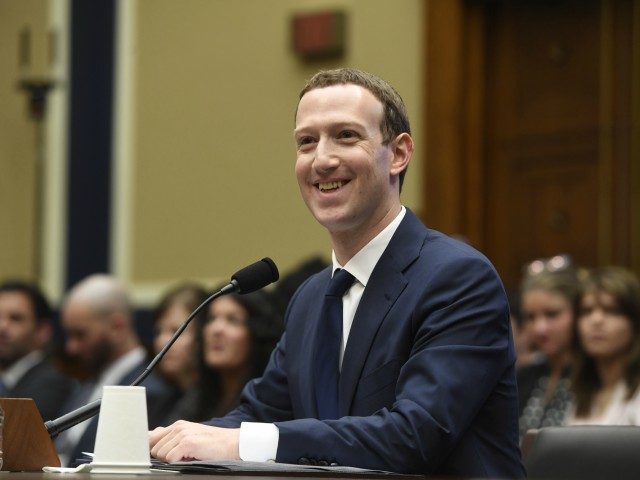Legacy conservatives have sent a clear message to the masters of the universe in Silicon Valley. That message is: “we surrender!”
That about sums up the new, self-destructive tendency in the D.C. conservative establishment. A growing number of “free market” advocates are making the case that Facebook, a 2-billion user behemoth with no serious competitor, has every right to censor the conservative movement and its leaders.
According to this argument, Facebook isn’t an all-conquering monopoly with more power to shape opinion than the worst totalitarian governments of the 20th century. No — it’s just a little, innocent, “private company” operating in a “free market.” Just like a socially conservative cake shop in the midwest!
It’s genius, when you think about it. To counter the allegation that it censors conservatives, Facebook plans to work with conservatives who are totally OK with their movement being censored, as long as it’s a corporate superpower doing it and not the government.
It would be one thing if the think-tank conservative set were saying that the unchecked political power of Silicon Valley doesn’t warrant regulation yet, but holding out on the possibility of such regulation if things get worse. That, at least, would act as a deterrent, in much the same way that the Democrats’ threat of regulation is forcing Facebook to take action on fake news and data privacy.
But that’s not their argument. Instead, it’s the same tired 1980s dogma that free market competitors to Facebook and Google will fix the problem, and that regulation is never the answer.
“Facebook can ultimately make decisions about what kind of speech it wants to have on its platform” was the conclusion of Klon Kitchen, tech policy expert at the Heritage Foundation. Berin Szóka of TechFreedom, the go-to conservative for the “everything’s fine!” argument on social media censorship, argues that we just have to wait for the “next Facebook”, while disingenuously comparing all proposals for social media regulation to the Fairness Doctrine, a pre-1980s piece of legislation that stifled competition in broadcast media.
This argument, which can be paraphrased as “everything I don’t like is the Fairness Doctrine”, follows a similar logic to those that compare the construction of a border wall to the second coming of fascism.
None of these free market geniuses have grasped that Google and Facebook aren’t just monopolies (any first-grade economics teacher can tell you that a market dominated by monopolies is not “free”), they are unique in the vast power they have over the flow of information. No other organization in history has had the power to shape opinion, control public discourse, and influence democratic voters.
Facebook has the power to kill a news website by adjusting its algorithm without warning. They have already done so on two occasions. By signalling to news publishers that their standards are changing, Facebook has the power to change the way news organizations behave on an international scale. That’s to say nothing of their power to manipulate voter registration and turnout.
Google, meanwhile, holds a 90 percent market share in search and is even more terrifying in its power. Recent research has shown that the company can change the preferences of undecided voters by up to 80 percent, just by tweaking their search suggestions. The Soviet Union could only have dreamed of such manipulative power. And it all lies in the hands of one company, with no regulation and no oversight to contain it.
Nevermind the fact that these companies are monopolies. Even if they were not, their unaccountable political power deserves oversight in its own right. Social media companies are not like newspapers or radio stations. Nor, evidently, are they neutral platforms. They are something entirely new, and the problem of their unrivaled power cannot be addressed by reference to the past.
Don’t expect legacy conservatives to understand that, though. Armed with slogans from the 1980s, they’re still fighting the battles of a bygone era. They have abdicated the fight against the masters of the universe. But that doesn’t mean the rest of us should.
Allum Bokhari is the senior technology correspondent at Breitbart News. You can follow him on Twitter, Gab.ai and add him on Facebook. Email tips and suggestions to allumbokhari@protonmail.com.

COMMENTS
Please let us know if you're having issues with commenting.